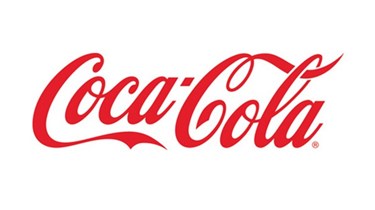Restaurant And Hospitality News – March 21, 2016

By Christine Kern, contributing writer

In news this week, new overtime rules could cost the restaurant industry millions; Coca-Cola integrates its rewards program and mobile payments into its vending machines; and water bottle refilling stations are becoming more common in hotels.
As Department of Labor Pushes New Overtime Rules, Congress Pushes Back
The U.S. Department of Labor sent its final overtime rules to the Office of Management and Budget (OMB) last week, moving closer to the publication of these final rules. But even as they move closer to establishing these new regulations – which could force the way restaurants pay managers – Congress is pushing back to introduce legislation that would block these changes. Republicans sponsoring the legislation argues that the Labor Department’s regulations disregard the level of stress they would place on businesses. Republican Tim Scott said, “The Obama administration’s decision to drastically redefine overtime will hurt our workforce and our employers. It will lead to reduced hours, confusion for job creators, and will limit growth opportunities for employers.”
As proposed, the rules dramatically increase the weekly pay threshold for those exempt from overtime pay, and could have a significant impact on both employer costs and management strategies, according to the Nation’s Restaurant News. The National Retail Federation estimates that the new regulations could cost retail and restaurant businesses some $745 million to comply. “I think it’s going to cost money in the long run for most restaurants. Some restaurant companies will handle it more effectively and mitigate costs,” explained attorney Elizabeth Washko, part of Ogletree Deakins labor and employment firm. For example, many chains could be required to increase their base pay for managers in order for them to be exempt from overtime rules. “Exempt managers work hard, and they work hard for good reason, because of incentives, bonuses and things to make the restaurant more successful,” Washko said. “They work nowhere near a 40-hour workweek. They’re either going to have to bump them up to the new minimum or reclassify them as non-exempt, which may result in overtime.”
After the OMB review, which could take 30 to 90 days, employers will have 60 to 90 days to comply. The National Retail Federation expects that the new rules will affect 2.2 million retail and restaurant workers, and that 32 percent of those would actually be converted to hourly.
Coca-Cola Integrates Rewards Program To Vending Machines, Apps
Coca-Cola has announced that it is introducing iOS and Android into their respective “native services” that allow customers to earn rewards points through its vending machines. The points can be redeemed for free soft drinks and other perks, and the company views the vending machines as “worldwide retail stores that aggregate data on a variety of consumer actions.” the loyalty program will allow the brand to identify the consumer, the type of drink, and the location in which the purchase is made. The data would become available for remarketing a variety of its products.
According to Coca-Cola, the North American vending fleet will include 100,000 Android-enabled machines by the end of 2016. “This adds to the list of over 700,000 merchants in the U.S. where people can seamlessly tap and pay with their Android phones,” explained Spencer Spinnell, Google’s director of business development.
Enabling Android Pay gives customers an easy way to connect to the MyCokeRewards program, and also provides “a faster, simplified experience connecting loyalty to transactions,” said Michelle Routh, chief information officer for Coca-Cola North America. “It streamlines consumer point accumulation and redemption of the rewards they want most – Coca-Cola products. And Android Pay allows us to connect our members with owned assets like our vending machines in a seamless way. Mobile payments combined with loyalty and digital offers creates a ubiquitous way for Coca-Cola brands to deliver value-added experiences to our consumers and our customers.” As new devices and technologies continue to remove barriers to mobile payments at vending machines, Myers predicts that they will account for 20 percent or more by 2020. “When most consumers walk up to a vending machine today, they immediately dig into their pockets for cash or search for a credit card,” Derek Myers, group director of channel strategy and development, Coca-Cola North America, said. “But we almost always have a smartphone in our hands when we get there, making mobile payments the easiest way to pay.”
Hotels Turning To Bottle Filling Stations To Reduce Waste
In an environmentally-friendly program designed to eliminate plastic bottle waste, reduce costs, and enhance employee and guest health, many hotels have begun to introduce water bottle filling stations in both front and back of house areas, according to Hotel News Resource. Stations are offered by several vendors, including FloWater, Haws and Elkay, and each company offers its own spin on the process. Models range from basic to complex, and some even include counters that show how many plastic bottles have been avoided, data that can be significant for a hotel property’s sustainability story.
The bottle filling stations are also finding positive reception among hotel guests. Reno, Nevada’s Whitney Peak Hotel placed FloWater bottle filling stations on 12 guestroom floors. Niki Gross, Managing Director of the Whitney Peak Hotel, says that not only does this reduce the number of disposable plastic bottles being used, it also opened up another revenue stream for the hotel in the sale of reusable bottles with the hotel’s logo. “The filling stations have all functioned perfectly,” Gross said, and guests have mentioned them in prominent reviews on TripAdvisor, Yelp, and Booking.com.
Ted Hertz, General Manager for the Brita Hydration Station product line, explained that bottle filling stations are just beginning to take hold in the hotel industry, stating: “It is in the early stages and picking up a little steam. They are becoming standard in renovations. We first say them in club lounges or lobby areas but we are now seeing them in fitness rooms and on hotel floors.”
